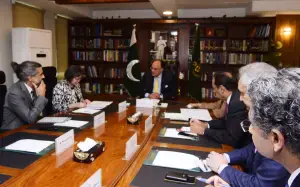Net metering to be ended after a decade
2 min readAfter more than a decade of debate, the Netherlands parliament’s lower house has given a green signal to a proposal to phase out the country’s net-metering scheme starting in 2027.
The Dutch parliament’s lower chamber Tweede Kamer took the decision, according to news websites dedicated to solar energy.
Net metering provides an opportunity for residential and commercial customers who generate their own electricity through solar power. It allows them to sell any excess electricity back to the grid. Many governments have allowed this system to promote clean energy and overcome the fuel bill.
As a billing mechanism, net metering credits owners of solar energy systems for the surplus electricity they contribute to the grid. This arrangement not only promotes the use of renewable energy but also helps users offset their energy costs, making solar power a more attractive investment.
A Dutch trading group representing the solar industry hailed the decision. It would provide “much-needed clarity” and allow photovoltaic (PV) companies to strategise for the future, Holland Solar said in a statement.
“The political discussion on this topic has spanned over a decade and is finally reaching a conclusion. The constant political back-and-forth has not benefited the solar energy sector,” the Utrecht-based organisation said.
The association emphasised that the focus should shift towards encouraging greater self-consumption of solar energy and expressed its satisfaction with the energy minister’s promise to engage in discussions with the market.
It advocated for additional incentives to encourage homeowners to invest in solar boilers, heat pumps, and other technologies that support PV self-consumption.
Holland Solar proposed a “flex bonus,” which would serve as a “stacked subsidy” rewarding the purchase of solar panels alongside measures that increase self-consumption.
Also, read this
According to recent research, the payback period for residential PV systems ranges from seven to nine years. If net metering is eliminated, this payback period could potentially extend to 12 to 17 years, largely depending on the future grid fees imposed by Dutch energy providers.
Pakistan is also one of those countries dealing with high fuel import bills. Most of this is consumed for electricity production. But the government has called for using solar energy to alleviate the burden on the government.
In April, there were reports the government was contemplating a significant reduction in the rates paid to consumers who generate solar power through net metering. Through net metering, solar panel owners are selling electricity to distribution companies at Rs21 per kWh.
For the latest news, follow us on Twitter @Aaj_Urdu. We are also on Facebook, Instagram and YouTube.


























Comments are closed on this story.